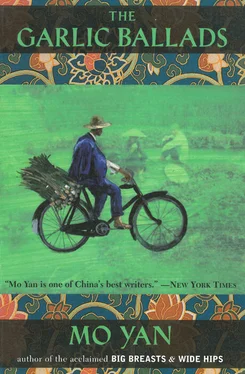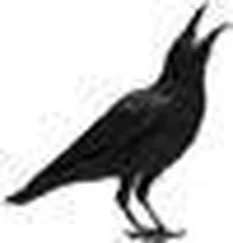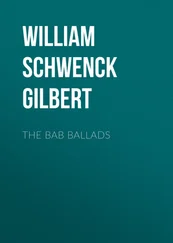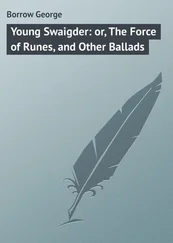3.
“Was it you who led the mob that demolished the county administrator’s office?”
“Mr. Jailer, I didn’t know it was his office. … I stopped as soon as I found out.” He was on his knees.
“Sit down like you’re supposed to!” the policeman demanded roughly. “Do you mean to say if it had been somebody else’s office it would have been okay?”
“Mr. Jailer, I didn’t know what I was doing. I got swept along with the crowd.… I’ve been a model citizen all my life. I’ve never done anything bad.”
“If you weren’t such a model citizen you’d have torched the State Council Headquarters, I suppose,” the policeman said derisively.
“1 didn’t start the fire. Fourth Aunt did that.”
A policewoman handed a sheet of paper to the policeman in the center, who read it aloud. “Is this an accurate statement of what you said, Gao Yang?” he asked. “Yes.”
“Come over here and sign it.”
One of the policemen dragged him over to the desk, where the policewoman handed him a pen. His hand shook as he held it. Were there two vertical strokes in “Yang,” or three? “Three,” the policewoman told him.
“Take him back to his cell.”
“Mr. Jailer,” Gao Yang fell to his knees again and begged, “I’m afraid to go back there.
“Why?”
“Because they gang up on me. Please, Mr. Jailer, put me in another cell!”
“Let him bunk with the condemned prisoner,” the policeman in the center said to his colleagues.
“Want to bunk with a condemned man, Number Nine?”
“Anything, just so you don’t put me back with them!”
“Okay, but make sure he doesnt try to kill himself. That’ll be your job, for which you’ll get an extra bun at each meal.”
4.
The condemned man, sallow-faced, clean-shaven, with green eyes that rolled around his sunken sockets, terrified Gao Yang, who was in his new cell only a few seconds before realizing what a terrible mistake he’d made. Except for a single cot, the cell was furnished only with a rotting straw mat. The condemned man, manacled hand and foot, hunkered in the corner and glared menacingly at Gao Yang, who nodded and bowed slightly. “Elder Brother, they sent me to keep you company.”
The condemned man’s lips split into what passed for a smile. His face was the color of gold foil, and so were his teeth. “Come over here,” he said with a nod.
Gao Yang was wary, but the manacles were reassuring — how much damage could he do all trussed up like that? Cautiously he approached the condemned man, who smiled and nodded, urging him to come closer, and closer, and closer.
“Elder Brother, is there something you want?”
The words were barely out of Gao Yangs mouth when the condemned man reached out and banged Gao Yang’s head with the handcuff chain. With a cry of pain, Gao Yang crawled and rolled over to the cell door, followed by the condemned man, who hopped in pursuit, murder in his eyes, his manacles scraping the floor. Gao Yang slipped under the outstretched arms and darted over to the bed, only to be driven back to the door when the man came after him again. That went on another dozen times or so, until the condemned man plopped down on the bed and said through clenched teeth, “Don’t come near me or I’ll bite your head off. Since I’m going to die, I want somebody to lead the way.”
An exhausted Gao Yang forced himself to stay away that night. The overhead light, which was left on twenty-four hours a day, allowed a measure of well-being as he curled up on the floor alongside the door, putting as much distance between him and his cellmate as possible.
The condemned mans greenish eyes stayed open all night long, and whenever Gao Yang started to doze off, he stood up. Gradually the threat of danger sharpened Gao Yang’s senses: at the first sign of a rattle he sprang to his feet and readied himself for another confrontation.
At dawn the condemned man finally rested his head against the wall and closed his eyes. He looked dead already. Gao Yang recalled hearing people talk when he was just a boy about the scary business of spending the night with a corpse. They said that late at night, when everyone’s asleep, the dead rise to haunt the living, chasing them round and round until cockcrow, when they finally lie down again. The night just past was pretty much like that, except that spending the night with a corpse could earn you a tidy sum, while all he’d get for watching his condemned cellmate was an extra bun at mealtime.
At this rate, he thought, I’ll be dead in a month.
He could kick himself.
Old man upstairs, get me out of here. If you do, I’ll never complain, never fight, never ask for help, even if someone dumps a load of shit on my head.
Townsfolk, hard work and sweat never hurt anyone.
Dig wells, lug water, fight the drought:
Watering the garlic makes it grow an inch a night—
Each inch is the gold you turn into cash….
— from a ballad by Zhang Kou urging the townsfolk to fight the April drought
1.
A bright full moon rose slowly like a voluptuous flower, its beams carrying a strong bouquet of new posies that settled over the vast wild-woods. Dry, warm breezes, unique to April, swept across the fields. No rain had fallen in months, leaving the land as parched and chapped as the farmers’ lips. Crops were coated with rust; newly emerged garlic shoots hung their heads in dejection.
Glimmers of lantern light dotted the fields where farmers irrigated their garlic crops by hand. Gao Ma was one of them. Well water was at a premium — no more than twenty bucketfuls came up before the dry bottom reappeared — so he trotted more than a hundred yards to a piece of land farmed by the old graybeard Wang Changli to pass the time while he waited for the next buildup.
Old Man Wang’s well was outfitted with a windlass, but the water level was no higher than anyone else’s. It had just gone dry when Gao Ma ran up.
“Take a break, Grandpa Three, and have a smoke,” Gao Ma said.
“Sure, why not?” the old man said, edging his wooden bucket over to the rim of the well with his foot.
“How about a story?” Gao Ma rolled a cigarette and handed it to Old Man Wang.
“Now, where would I get a story?” the old man said as he puffed on the cigarette, the glow turning his lips bright red.
The crisp gurgle of water flowing into the well rose to merge with the sputtering of a diesel engine in the distance. Leaves of irrigated garlic plants reached out to catch the dimmed moonbeams. A raven flying near the moon sent loud caws earthward.
“Ever been to Zhang Family Bay?” Old Man Wang asked.
“No.”
‘The frogs there never croak.”
“How come?”
“Listen, and I’ll tell you.”

Moonbeams streamed through the barred window of the solitary confinement cell reserved for serious offenders like Gao Ma.

A mother and her son once lived in Zhang Family Bay. Her name was Zhang née Liu; her sons name was Nine-five. Little Nine-five was smarter than the other boys, so his mother went out begging to earn his tuition. But Nine-five, a mischievous little boy, was forever getting into trouble. His teacher always left the room after passing out the homework assignments. Why? Since that’s a story in itself, I’ll start with it.
The mother of one of the students, a boy named Winter-born, was a real beauty, so the story goes. Everyone called her Teapot Lid. One day the teacher asked Winter-born, “Does your mother ever think about me, Winter-born?” When he went home that day, Winter-born said to his mother, “Mother, the teacher wants to know if you ever think about him.” His mother smiled but said nothing. One day led to another, and each time the teacher saw Winter-born he asked the same question. And Winter-born dutifully went home and told his mother. One day, after the teacher asked, as always, and his student went home and told his mother, as always, she said, “Tell your teacher that I do think about him, and invite him to drop by tomorrow.” The next day, after the student had carried out his mother’s wishes, the teacher hurriedly passed out the assignment, turned, and bolted out of the classroom. Where was he headed? To Winter-born’s house, where the boy’s mother was sitting on the kang, face powdered and hair oiled. The moment he laid eyes on her, he rushed up like a cat pouncing on a mouse and began fondling her breasts and kissing her on the mouth. She let his hands roam freely until he tried to undo her waistband. Yet he persisted until the waistband was loosened. But then came a knock at the door. Oh-oh,” she exclaimed, “it’s Winter-born’s father!” The teacher was scared silly. What to do? The knocking at the door grew more urgent. “Teacher,” Winter-born’s mother said, “there’s a millstone in the back room. Pretend you’re a donkey turning the millstone.” Caring only about his own skin, the teacher jumped at the idea. A millstone stood in the center of the room, just as she had said. Two pecks of raw wheat had been spread over it, waiting to be ground. So, grabbing the handle, he began turning the millstone; neither too large nor too small, it was just the right size for a grown man. Through the door he heard Winter-born’s mother climb slowly off the kang and open the door for her husband, who demanded, “What were you doing in here — committing adultery?” “How dare you!” she replied indignandy. “I borrowed a donkey to turn the millstone, since we’re out of flour, as you very well know.” “An obedient animal?” he asked. “No, it took forever to hitch it up to the millstone,” she said with a pout. “That’s why it took me so long to answer the door.” She continued: “And for that I get accused of committing adultery!” “Wait here,” Winter-born’s father said, “while I go give that bastard of a donkey a good beating. That should make you feel better.” The teacher, nearly filling his shorts and peeing his pants, turned the millstone with renewed vigor. “Hear that?” Winter-born’s mother said. “The donkey heard you and started pulling even harder.” “Warm me a pot of wine,” Winter-born’s father said, after which the teacher overheard the couple drink and whisper and giggle on the kang. How to describe the feeling that flooded his heart — sweet, sour, bitter, spicy? He couldn’t say for sure, but as he pondered these thoughts, his movements slowed. “You borrowed a lazy donkey,” Winter-born’s father said. “I’m going in there to give the bastard a good beating!” That got the teacher moving again — he nearly flew around that millstone. “No need,” Winter-born’s mother said. “It speeds up every time it hears your voice.” The sweaty-faced teacher turned the mill for all he was worth. “Teapot Lid, since the boy isn’t home, let’s have some fun,” Winter-born’s father said. “Why, you greedy thing!” she said. “What if the donkey hears us?” “I’ll go stop up its ears,” Winter-born’s father said. The rattled teacher nearly flew around that millstone. “No need for that,” Winter-born’s mother said. “All it cares about is turning the millstone. It’s not interested in what we do.” So the teacher listened to them have their fun, getting a taste of how the mute feels when he eats bitter herbs and can tell no one. Their frolicking ended, Winter-born’s father said, “I have to go till the field on the southern slope.” “Go ahead,” Winter-born’s mother said. And he did, shutting the door behind him. The teacher crumpled into the rut around the millstone as Winter-born’s mother rushed into the room. “Teacher, get out of here, fast, while Winter-born’s father is out in the field!” And he did. Several days later, Winter-born said to the teacher, “Master, my mother says she’s been thinking about you again.” The teacher grabbed the boy’s hand and smacked it with his pointer. “You littie bastard!” he cursed. “Have you run out of flour again?”
Читать дальше













